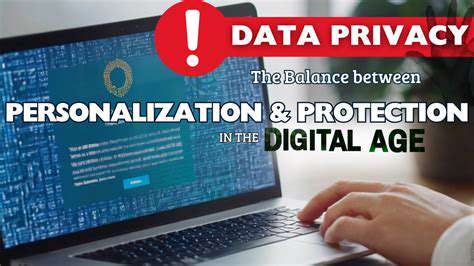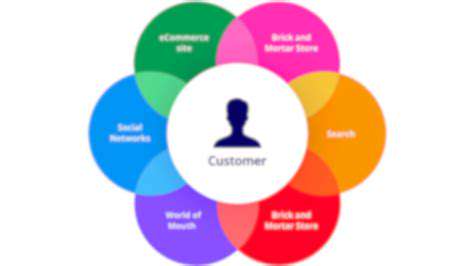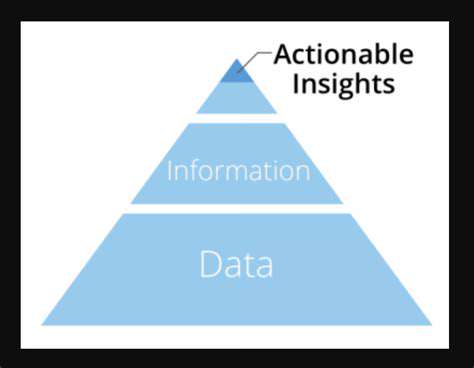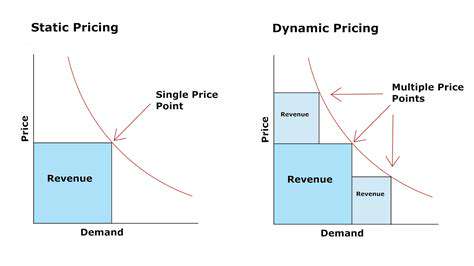The Future of Mobile Marketing: Personalization
Beyond the Basics: Understanding Motivations
While age and location provide a basic snapshot of users, truly effective mobile marketing requires diving deeper. Discovering what truly drives user actions separates generic campaigns from impactful ones. Are users seeking convenience, social connection, or entertainment? Uncovering these motivations allows brands to craft experiences that feel personally tailored rather than mass-produced. This shift from broad assumptions to precise understanding transforms how businesses engage with mobile audiences.
Examining user journeys across mobile platforms reveals critical patterns - where they hesitate, what excites them, and when they disengage. These behavioral breadcrumbs allow companies to predict needs before users even articulate them. By designing around these insights, businesses create intuitive experiences that foster organic engagement and lasting loyalty - essential elements in today's competitive mobile ecosystem.
The Power of Contextual Understanding
True mobile intelligence means recognizing that user behavior changes based on situation. A person browsing at 8 AM during their commute interacts differently than at 9 PM on their couch. Weather conditions, local events, even battery levels - these contextual factors profoundly influence mobile engagement.
Smart marketers leverage this situational awareness to deliver hyper-relevant content. Imagine a food delivery app suggesting warm soups during rainy weather or a retail app highlighting sunscreen products during a heatwave. This dynamic approach transforms generic messaging into timely, valuable interactions that users genuinely appreciate.
Behavioral Patterns and Predictive Modeling
Mobile interactions create behavioral fingerprints - unique patterns that reveal user preferences. Analyzing these patterns allows businesses to anticipate needs before they're expressed. A streaming service might notice a user consistently watches cooking shows on weekends and could suggest new culinary content every Friday afternoon.
This predictive capability represents the future of mobile engagement - moving from reactive to proactive service. By studying behavioral sequences rather than isolated actions, companies can design experiences that feel almost intuitive, dramatically improving conversion rates and customer satisfaction.

The Importance of Privacy and Data Security in the Age of Personalization

Protecting Personal Information
As digital services become more personalized, protecting user data transforms from a technical requirement to a core business value. The paradox of personalization is that it requires data collection while demanding rigorous protection of that same data. Modern consumers understand this tradeoff and increasingly choose brands that handle their information responsibly.
Effective data protection combines robust encryption with transparent policies written in plain language. It's not enough to have security measures - users need to understand them. This dual approach builds the trust that makes personalized experiences possible in the first place.
Data Security Breaches and Their Impact
When security fails, the damage extends far beyond immediate financial losses. A single breach can permanently alter how customers perceive a brand, creating hesitation that lingers for years. The true cost includes lost opportunities from wary consumers who disengage entirely.
Forward-thinking companies now view security investments as customer retention tools rather than just compliance expenses. They understand that in the digital economy, data protection directly impacts brand equity and long-term viability.
Ethical Considerations in Data Handling
Ethical data practices create competitive advantages in an era of consumer skepticism. Clear consent processes, easy-to-access privacy controls, and straightforward explanations of data usage demonstrate respect for users that they reciprocate with loyalty.
This ethical approach extends to algorithmic fairness - ensuring automated decisions don't perpetuate biases. Companies that audit their systems for fairness discover opportunities to serve broader markets while building inclusive brand reputations.
Privacy Regulations and Compliance
Global privacy regulations like GDPR and CCPA represent more than legal hurdles - they provide frameworks for building consumer trust. Smart organizations exceed minimum compliance, using these standards as foundations for superior data practices that differentiate them in crowded markets.
The most progressive companies implement unified global standards regardless of location, recognizing that consistent privacy practices simplify operations while appealing to privacy-conscious consumers worldwide.
The Future of Privacy in a Digital Age
Emerging technologies will test our privacy frameworks in unexpected ways. The proliferation of IoT devices creates new data collection points, while AI systems generate insights from data combinations no human could process. Future-ready privacy strategies must be adaptable by design, capable of evolving alongside technological innovation.
The organizations that will thrive are those that view privacy not as a restriction, but as a creative challenge - finding innovative ways to deliver personalized value while maintaining rigorous data stewardship. This balanced approach will define next-generation digital experiences.
Read more about The Future of Mobile Marketing: Personalization
Hot Recommendations
- Personalizing Email Content with User Behavior
- Geofencing for Event Attendance Tracking
- Reputation Management on Social Media
- UGC Beyond Photos: Videos, Testimonials, and More
- The Future of Data Privacy Regulations
- Accelerated Mobile Pages (AMP) Benefits and Implementation
- The Future of CRM: AI and Voice Integration
- Google Ads Smart Bidding Strategies: Maximize Value
- Common A/B Testing Pitfalls to Avoid
- Local SEO Strategies for Small Businesses










